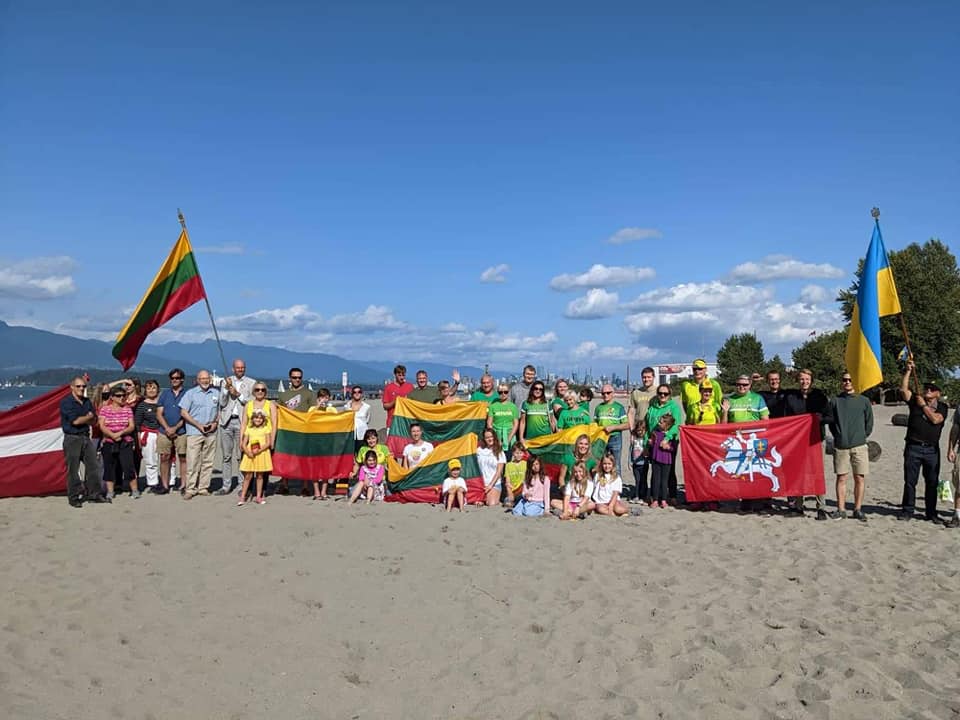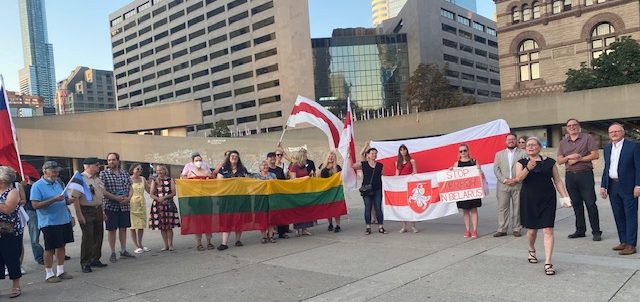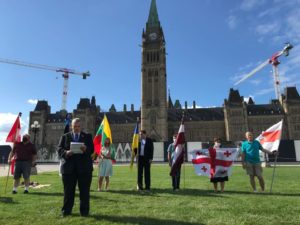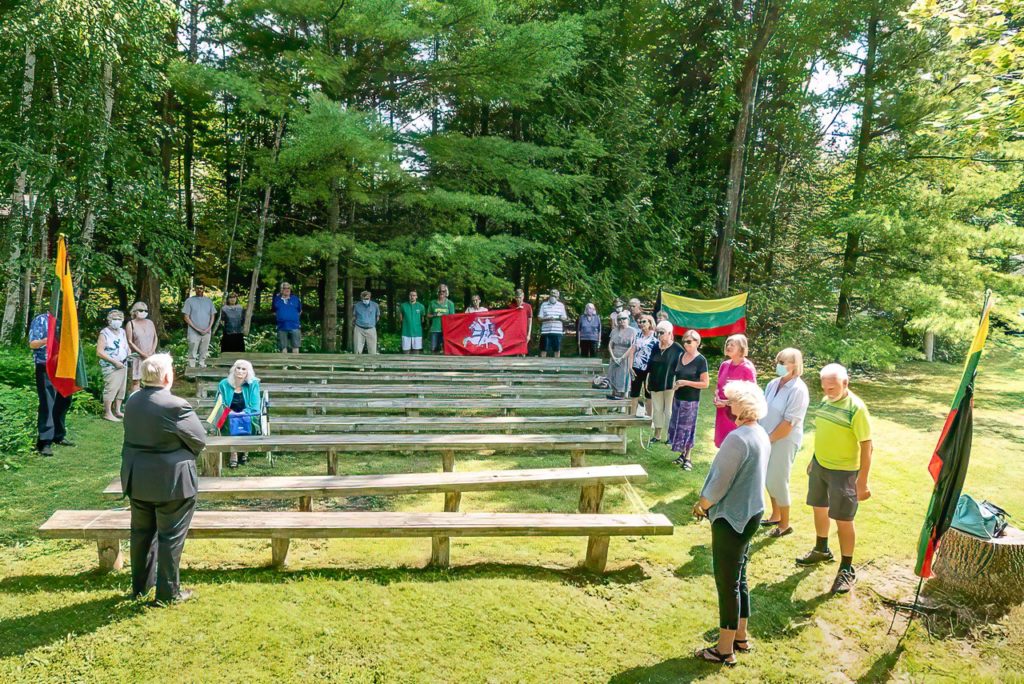
This year, the Central and Eastern European Council in Canada and the Baltic Federation of Canada, together with local communities, organized commemorative events for the 32nd anniversary of the Baltic Way and Black Ribbon Day throughout Canada.
In Vancouver the Balts gathered on August 22 at Jericho Beach, and Lithuanians in the Wasaga Beach community in Ontario had a commemoration as well. In Ottawa the event took place at the Parliament Buildings on August 23.

That evening Torontonians met at Nathan Phillips Square with their flags. Lithuanians were represented by members of the Canadian Lithuanian Youth Association and the Lithuanian Canadian Community Toronto chapter. Vice-president of the Lithuanian Canadian Community Executive, Joana Kuras, invited everyone to listen to a recording of the 1989 song Baltic Awakening, in Lithuanian, Latvian and Estonian.

She noted that this day is important not only for the Central and Eastern Europeans, but is also commemorated throughout Canada for the victims of Nazism and Communism since 2009, by a parliamentary decree initiated by Bob Ray. The group was also addressed by Lithuanian Honorary Consul-General Paul Kuras, as well as representatives of the Polish, Ukrainian and Belarusian communities.

Speaking in Ottawa at the commemoration at the Parliament Buildings, Kazimieras Deksnys, president of the Lithuanian Canadian Community executive, remembered participating in such gatherings and demonstrations in Hamilton and Toronto to protest the Soviet takeover of Eastern European countries, noting that if not for the pact signed by Molotov and Ribbentrop in 1938 on August 23rd, which divided Europe between the Soviet Union and Germany, we might have a completely different world today.
He reminded listeners that the signing of the Pact condemned many thousands of our friends and relatives to: death in their homes, death in the NKVD torture chambers, death in the cattle cars and ships that took them to Siberia, and a living death once they got to their destinations in Siberia from which many thousands did not return. Still others went into the forest and became partisans, like his own uncle. Those who managed to escape to the West, were the lucky ones, who only heard about the atrocities perpetrated by Stalin’s NKVD squads. The Ukraine famine of the 1930’s, the Katyn massacre in Poland, the torture of NKVD/KGB prisoners, the people shot trying to cross the Iron Curtain – all denied by the Soviets.

The Canadian-born children of parents who lived through the war and its aftermath were exposed daily to the stories of repressions, and understood the reason for commemorating the June deportations, Black Ribbon Day, independence day and other events that marked the history of their homelands, continued K. Deksnys. Their parents wanted to ensure their children understood the lies and cruelty of communism. Unfortunately, after the fall of the Soviet empire, the scenario is still not positive. Russian troops invaded Georgia in 2008 and are still there today under the pretext of protecting Russian citizens. Ukraine was invaded in 2014 under the same pretext and Russian troops are still there. Opposition leaders are poisoned or shot, Russian disinformation campaigns continue to spread propaganda and destabilization is Putin’s goal.
The speaker ended by encouraging everyone to help prepare the next generation to take up the cause and continue pressure on the West to hold Putin accountable for his actions, and to ask local parliamentary candidates about their position on these issues.



























